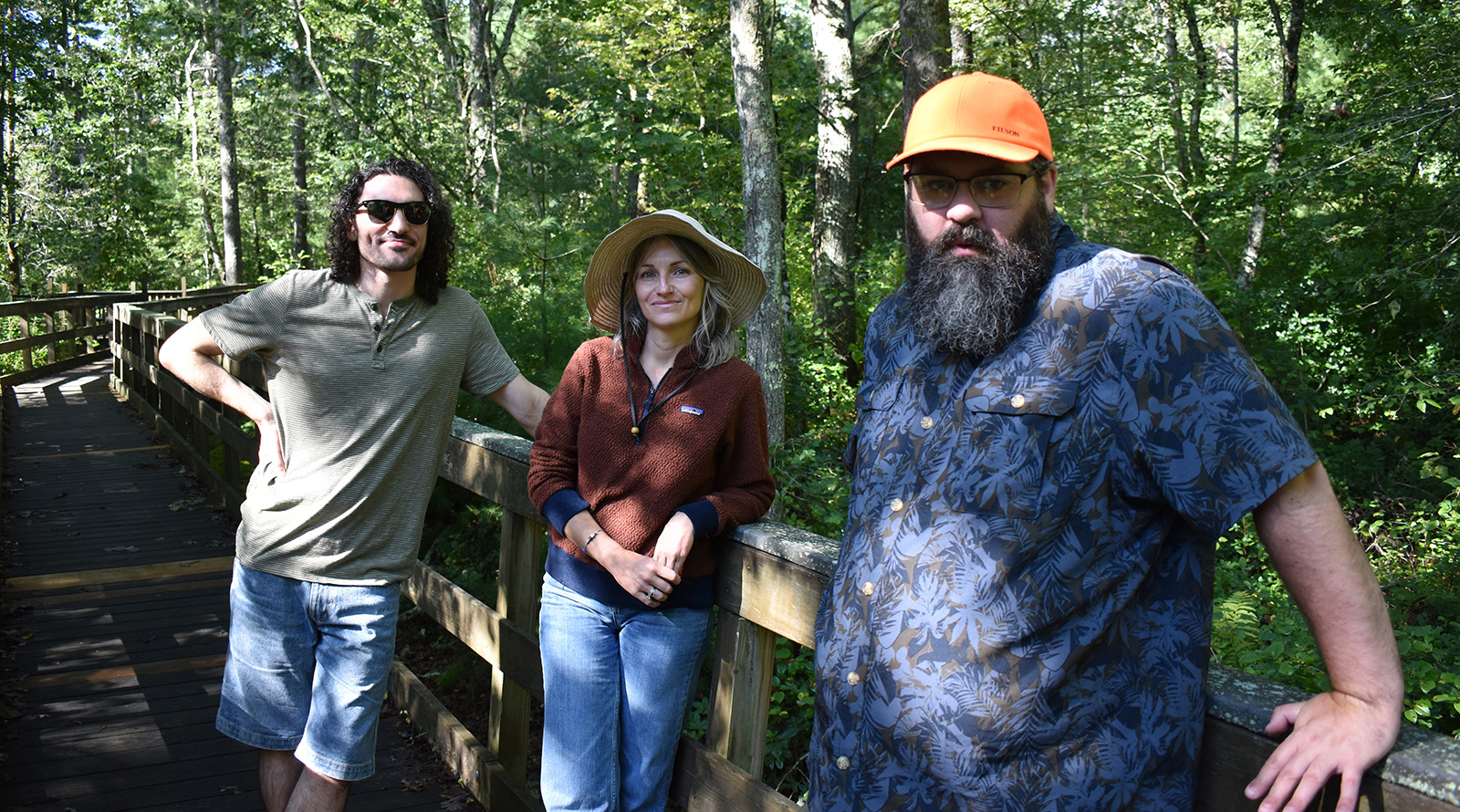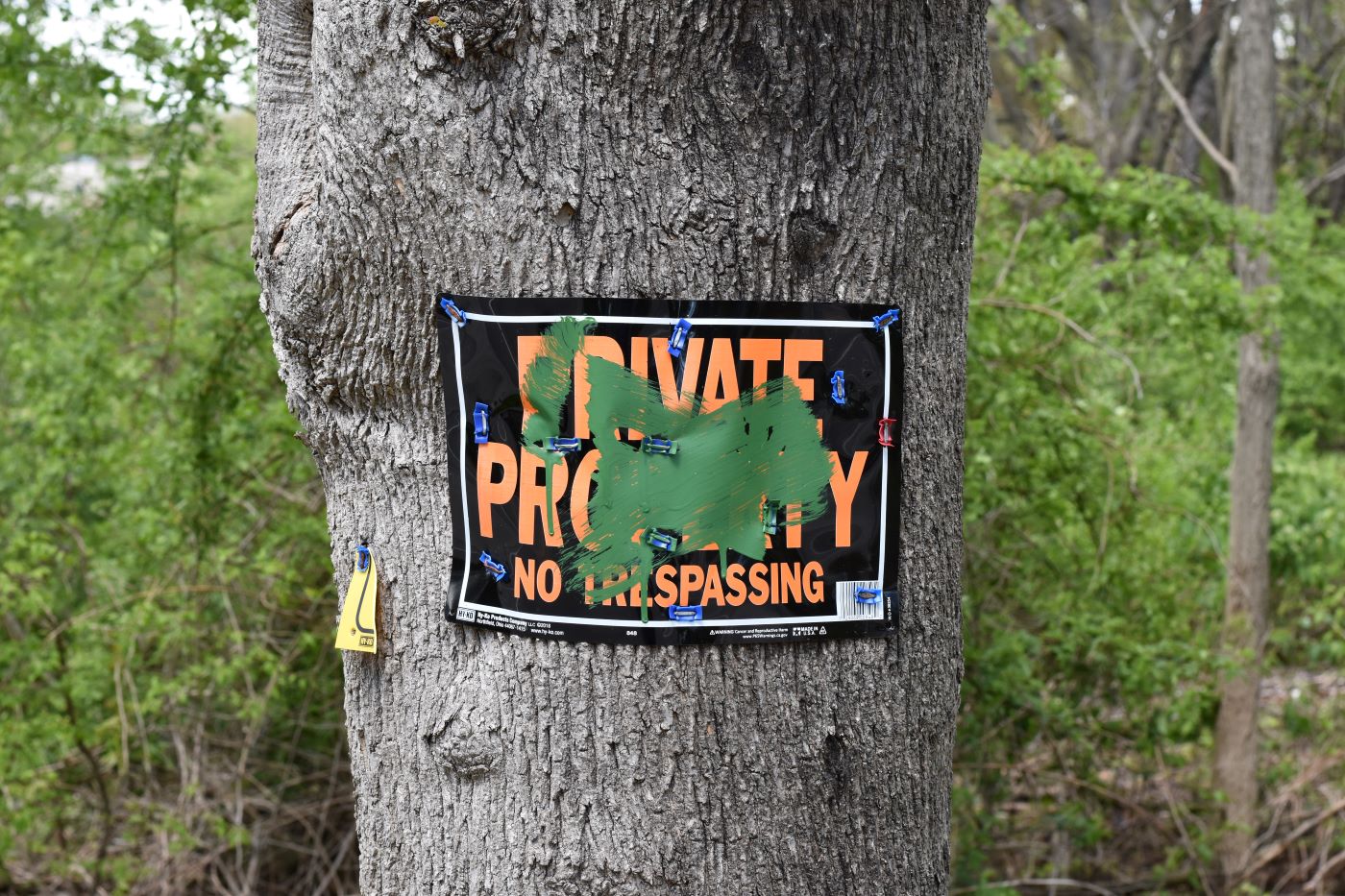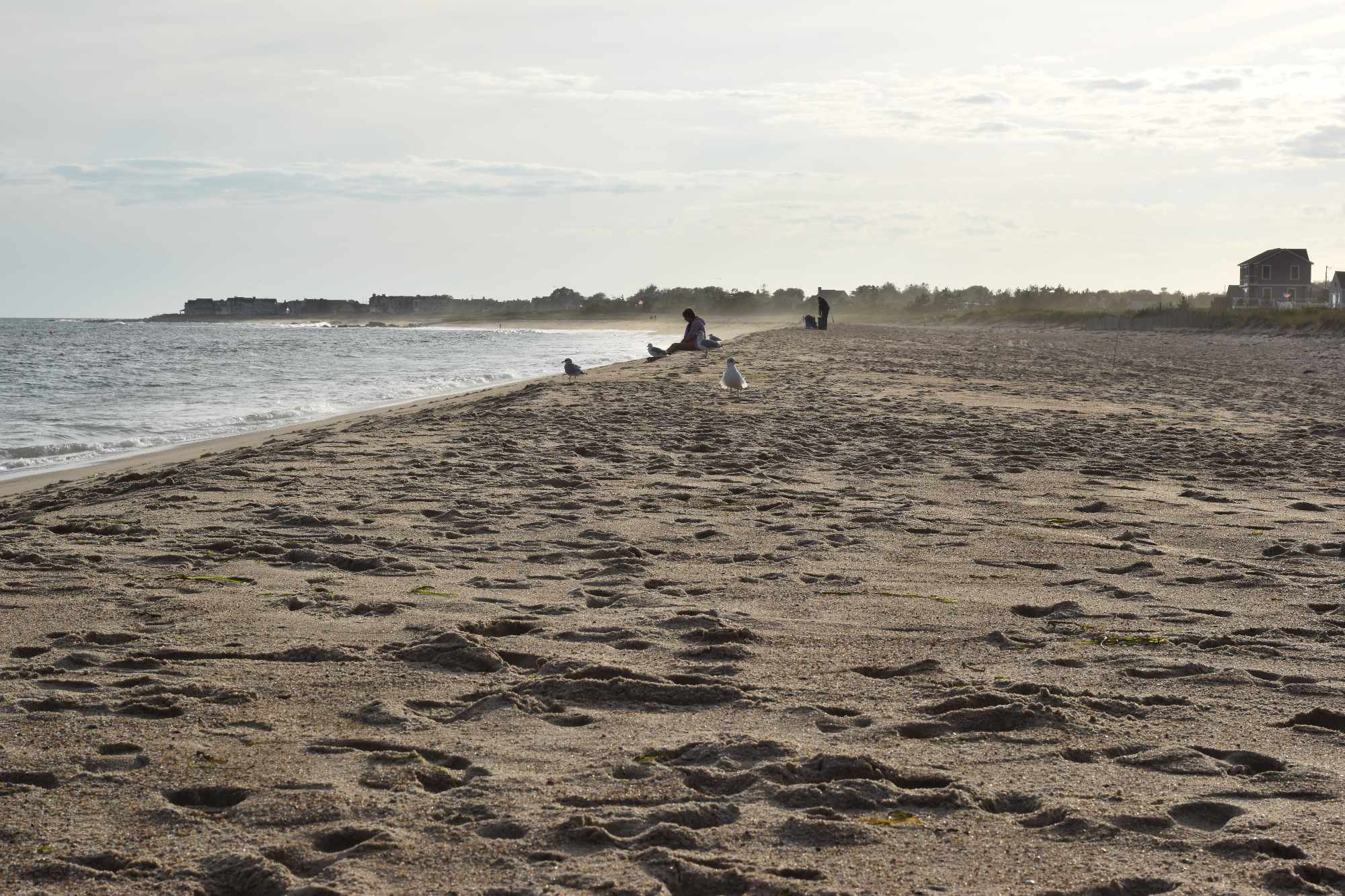Workforce Training Program Helps Keep Arcadia Hiking Trails Clear
Trainees maintain boardwalk used by those with mobility issues
September 25, 2023

EXETER, R.I. — The infamous hurricane of 1938 built the Tefft Hill Trail. Well, that’s not entirely accurate. One of the most powerful hurricanes in recorded history did the no-bid prep work. The FDR-era Civilian Conservation Corps, while conducting search and salvage operations and helping with the cleanup, built the Tefft and many other hiking trails in the area that would become known as Arcadia.
The Rhode Island Department of Agriculture and Conservation — now the Department of Environmental Management — acquired the 14,000-acre Arcadia Management Area a few years before the 1938 hurricane struck. Today, Arcadia features a wide range of natural landscapes, including hardwood and pine forests, hills and valleys, ledges, fields, and lakes, ponds, and streams of various sizes. It also boasts miles and miles of trail.
DEM doesn’t have the staff necessary to maintain all of Arcadia’s recreation aspects, so a 21st-century version of the Corps lends a hand — many hands, in fact.
Eight decades after one of President Franklin Delano Roosevelt’s most successful and popular programs laid the groundwork, the trails in Rhode Island’s largest management area are maintained and tended to under the direction of Jordan Miller, director of education and training for the Rhode Island Nursery & Landscape Association and the leader of RINLA’s Growing Futures RI initiative.
(The Civilian Conservation Corps began on March 31, 1933, under President Roosevelt’s New Deal, to relieve the poverty and unemployment of the Great Depression. Workers built trails, roads, campsites, and dams, stocked fish, built and maintained fire tower observers’ cabins, fought fires, and planted millions of trees. The Corps disbanded in 1942 because of World War II.)
For the past three winters, Miller and the program’s two other staffers — Christie Milligan, director of workforce programs, and Mason Billings, program associate and resources coordinator — shepherd 30-40 workers into the Arcadia Management Area to maintain trails, clear overgrown vegetation, repair wooden walkways, and remove invasives.
Jeffrey Arnold, DEM’s district resource manager, and a small crew of agency staffers are responsible for recreational operations and maintenance work at Arcadia. Similar partnerships, like DEM has with RINLA, also help maintain trails and recreation infrastructure in other management areas. Among the other organizations that provide trail clearing and repair work are the Appalachian Mountain Club and the New England Mountain Bike Association.
After “The Great New England Hurricane of 1938” tore through the region and the Civilian Conservation Corps helped put it back together, Tefft Hill, between Dawley Memorial State Park and Browning Mill Pond, became a recreational destination. The state operated a 50-site campground on Tefft Hill until the early 1980s. The campground had flush toilets, water fountains, a baseball field, a concession stand, and a beach staffed with lifeguards.
In fact, throughout Arcadia during its destination heyday, there were picnic tables and other amenities, offices in the woods, and a house for the caretaker and his family.

In the decades since DEM changed its management strategy for state-owned land, the picnic tables and structures that once decorated Arcadia have faded into the landscape. The baseball field swallowed by vegetation. The caretaker’s home razed, and the offices left to crumble. The lifeguard chairs removed.
After the campground closed, the state maintained the beach and recreation area until the mid-1990s, which is around the same time that the universal access boardwalk was built and the Tefft Hill Trail was being transformed into an area more accessible to those living with mobility issues.
Funded by a federal grant, the boardwalk and bridge were built in three phases over 10 years. DEM’s Division of Forestry “did the work using no mechanized equipment to avoid disturbing the sensitive environment,” according to Michael Healey, the agency’s chief public affairs officer.
“The footings used were pre-formed, carried out to the project site, and then placed on the surface instead of being dug,” Healey wrote in a recent email to ecoRI News. “This design also raised the walkway off the forest floor, allowing animals, reptiles, and amphibians to travel underneath.”
The first phase spanned 300 feet. Two additional phases stretched the walkway another 900 feet. Just short of a quarter-mile long, the wooden path connects Lower Roaring Brook to Upper Roaring Brook. The path features universally accessible fishing areas and wheelchair-accessible picnic tables.
Last year, DEM completed the rebuilding of the lower footbridge, which had degraded from use over time.
“We are glad that so many Rhode Islanders feel such a close connection to the Tefft Hill boardwalk,” Healey wrote.

Miller, who has worked in the horticulture industry in a variety of roles since 2004, was hired in 2020 to run RINLA’s new initiative. The purpose of Growing Futures is to “cultivate, train, and educate the next generation of natural resource professionals who will be charged with stewarding, protecting, and responding to a changing environment and feeding our community.”
RINLA’s education, training, and workforce development division was born in 2020 to help deal with soaring unemployment caused by the coronavirus pandemic. Miller, Billings, and Milligan were hired, at least initially, to build a workforce bridge from the hospitality industry to the landscape industry.
Every January and February for the past three winters, the 30-40 workforce trainees, under the guidance of the Growing Futures trio, prepare Arcadia trails for a new season of hiking and nature watching. Trainees are hired for a week or five, and crew leaders from RINLA’s 250 member businesses are loaned to the program to “help run things in small groups,” according to Miller.
“One of the main reasons for that is timing of when our industry starts up for the year and hires people, which is typically in March,” he said. “So we’ll do the training so that people graduate and then they go straight into job interviews and are able to get jobs for the season. The other part of it is because that’s a winter layoff time, we can actually get crew leader staff who were laid off from their landscaping jobs to be able to help us out.”
The RINLA employees also lug supplies and materials, cut up downed trees, replace rotted boards on wooden paths, wield hammers, and mark trails. No power tools are used. The work relies on human muscle.
The workforce trainees are paid $16 an hour for a 36-hour workweek — Monday through Friday. Besides clearing and repairing trails, their tasks include classroom work (Mondays on Zoom) and homework (Fridays). They work in Arcadia on the other three days unless the roads are unsafe for driving, it’s too frigid, or it’s raining. Miller said working in the rain creates more problems than it corrects.
Trainees are also taught some plant identification and some basic horticulture and ecological science.
“It’s kind of minimal on that level of education,” Miller said. “It’s much more about just being out here and doing the manual labor, but doing it in a thoughtful and intentional way. It’s not just throwing bodies at a problem. It’s trying to get people curious about the natural world, and excited to start working in our industry, working with plants.”
The program is designed to prepare participants to work for a tree company, in landscaping, on a traditional or flower farm, in horticulture, or in fine gardening. Trainees include those looking for a career change out of the restaurant, hospitality, education, or health-care industries. Participants range in age from their late teens to their 60s.
But, as Miller noted, “manual labor in the woods in January is not for everybody.”
Heading into the program’s fourth season, Growing Futures’ winter workforce has cleared and repaired 84 miles of trail in Arcadia, including the Tefft Hill Trail. DEM supplies the materials and space to store equipment.
This story is part of our “Special Places” series. Read other stories in this series.




My Daughter enjoys this boarded trail often. She has CP and this path gets her into the outdoors, which she throughly enjoys.